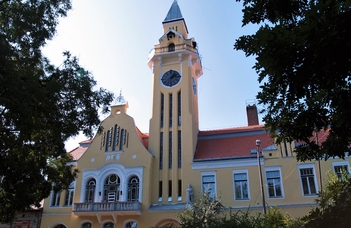Environmental Psychological Places of Nyírbátor's Residents

Identification of Social Problem
Nyírbátor is a medium-sized city in eastern Hungary that has undergone significant development in the past 15-20 years. These investments, some of which are private and others municipal or state investments, have reached a sufficient time distance to examine their impact on the city's everyday life. Seizing this situation, it is now worthwhile to conduct a situational analysis that, with a sufficiently objective assessment of recent developments, can provide perspectives for the future direction of development. The research group conducts environmental psychological, urbanistic, and urban analysis studies to explore different aspects. The basis of their study is data-based analysis describing the built, social, and economic environment objectively, while the examination of smaller individual spatial elements is done through surveys and psychometric measurement tools to understand the spatial usage and latent relationships of local residents and visitors. The analysis of public spaces and spatial systems using various spatial analysis methods (e.g., space syntax) is carried out in parallel with the questionnaire survey.
Expected Social/Economic/Environmental Benefits of the Research
Within the project, in line with the perspective of social innovation, a new urban development approach is being commercialized: the practical testing of theoretical methodologies (process-oriented urban development) can perfect the approach and methodology (representative sample quantitative questionnaire surveys, urban data analysis, focus groups, behavioral observations, space syntax-based spatial analysis) that examines the development of urban residents' well-being and indirectly their attachment to place. Testing the relationships between community spaces and people offers empirical research opportunities for the development of a city district, whether it is a municipal initiative or a private capital investment, to be implemented based on data and traceability (not only in Nyírbátor but also in other Hungarian settlements). One result of the research is that basic information necessary for the development of a city or city district is created through data-based and traceable direct questioning of individuals. Another result is a city network map that provides information on the network connections and behaviors of people using different parts of the settlement.
Contact
Andrea Dúll (Eötvös Loránd University, Faculty of Education and Psychology)
E-mail
More about the 2021–2022 phase of the research
